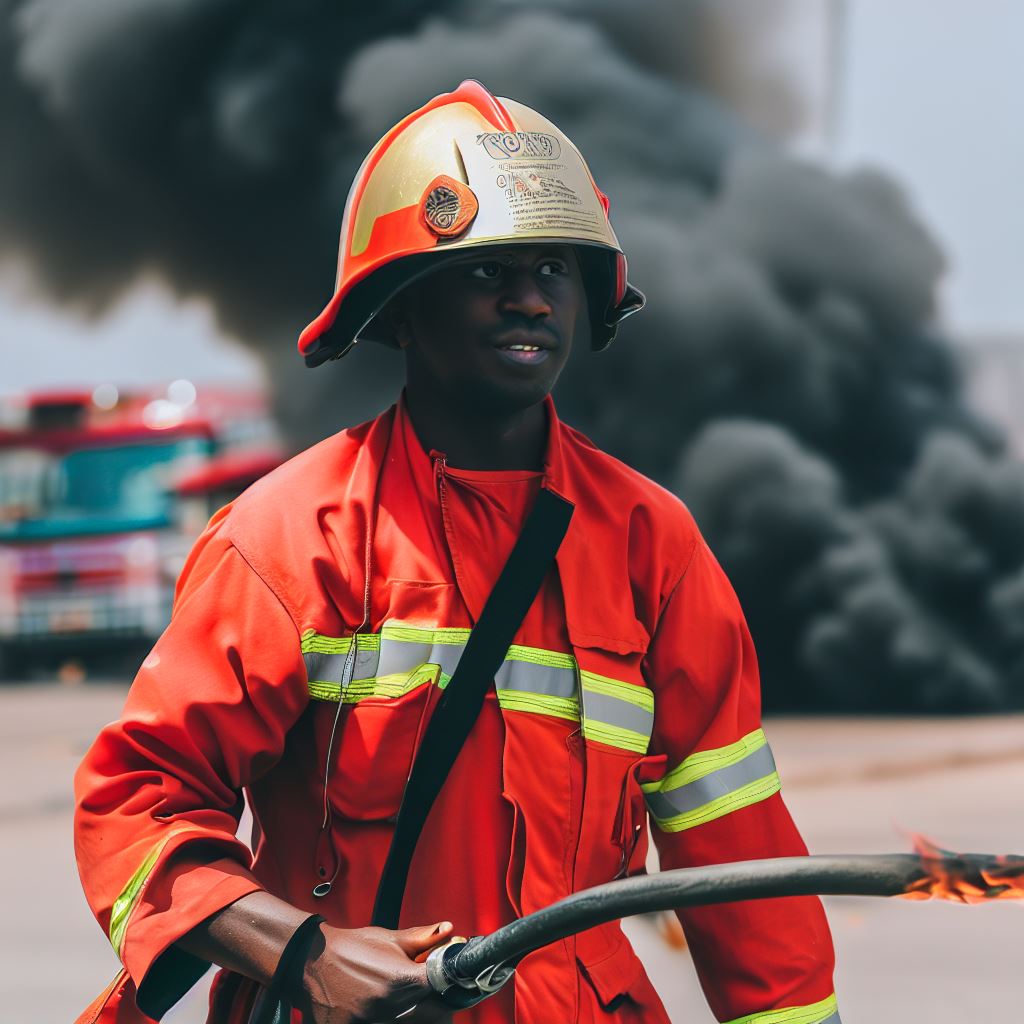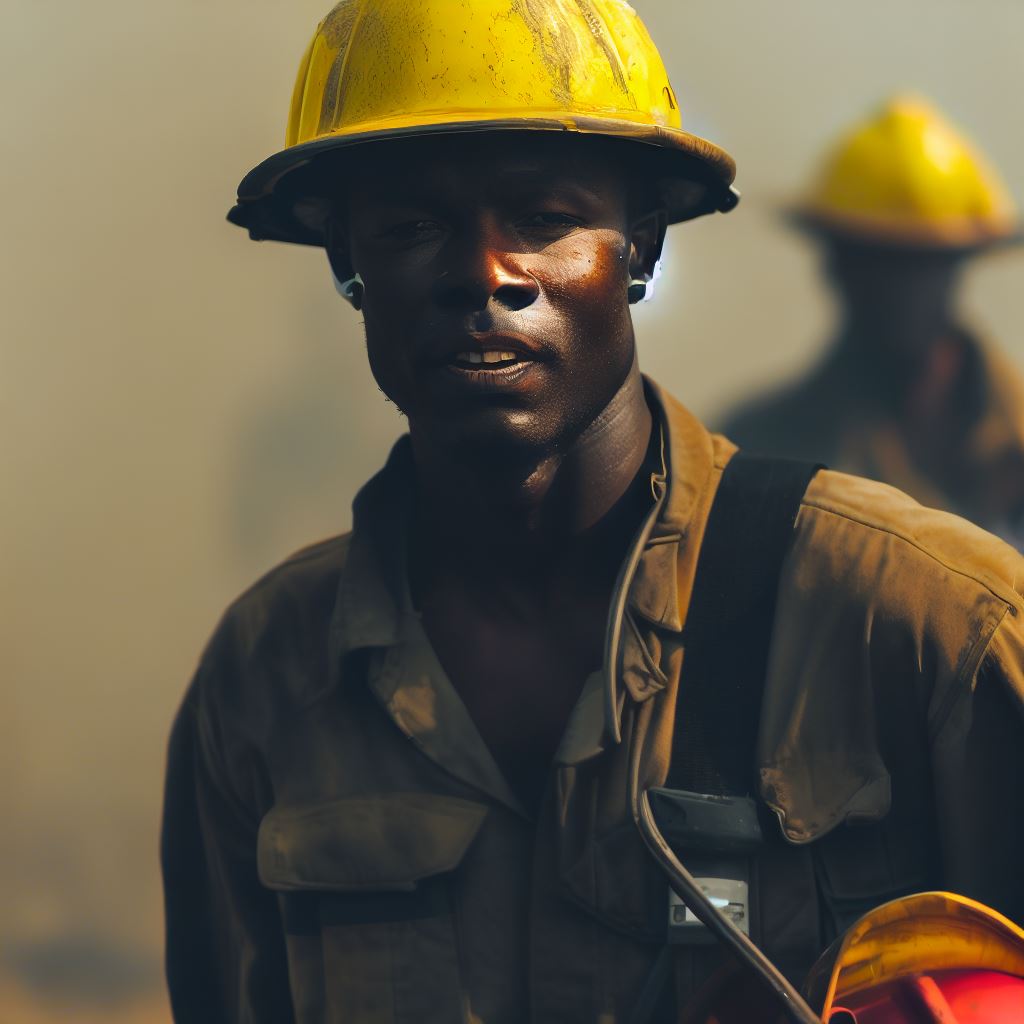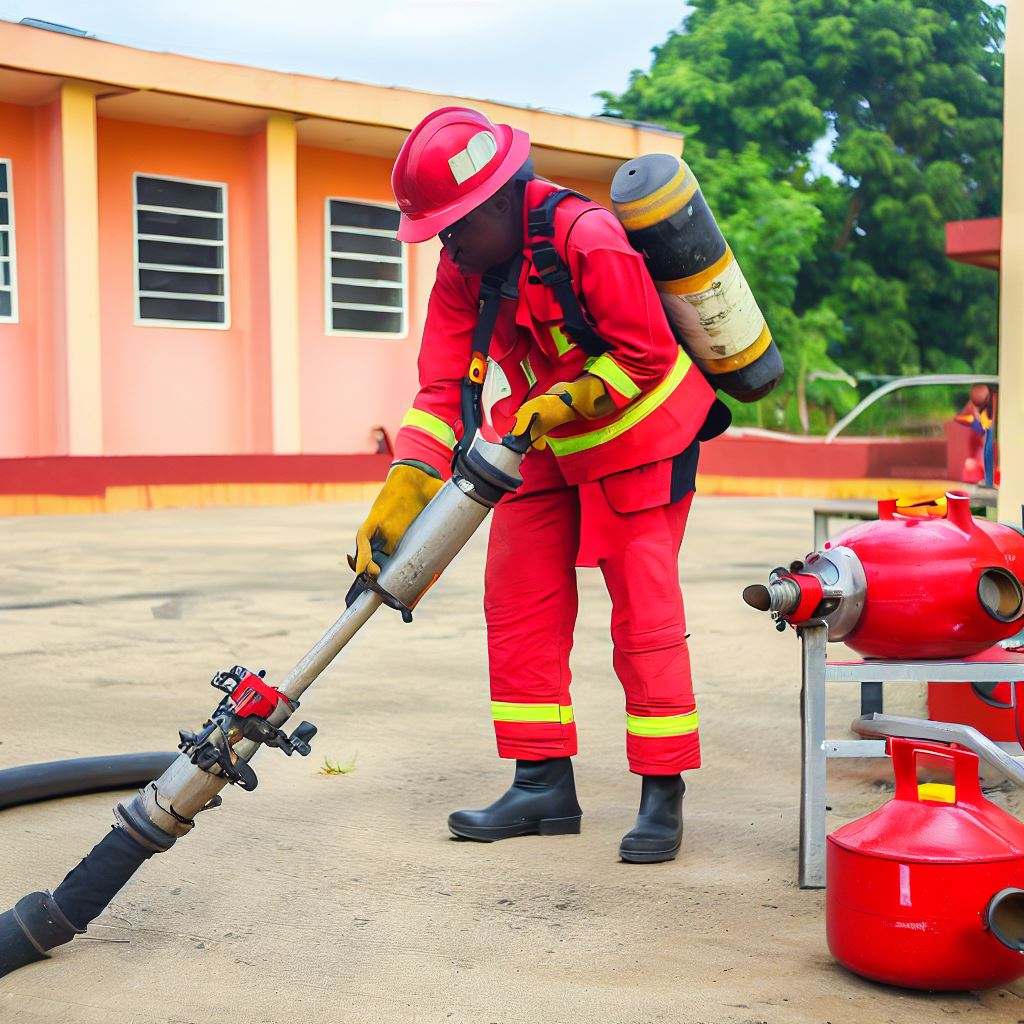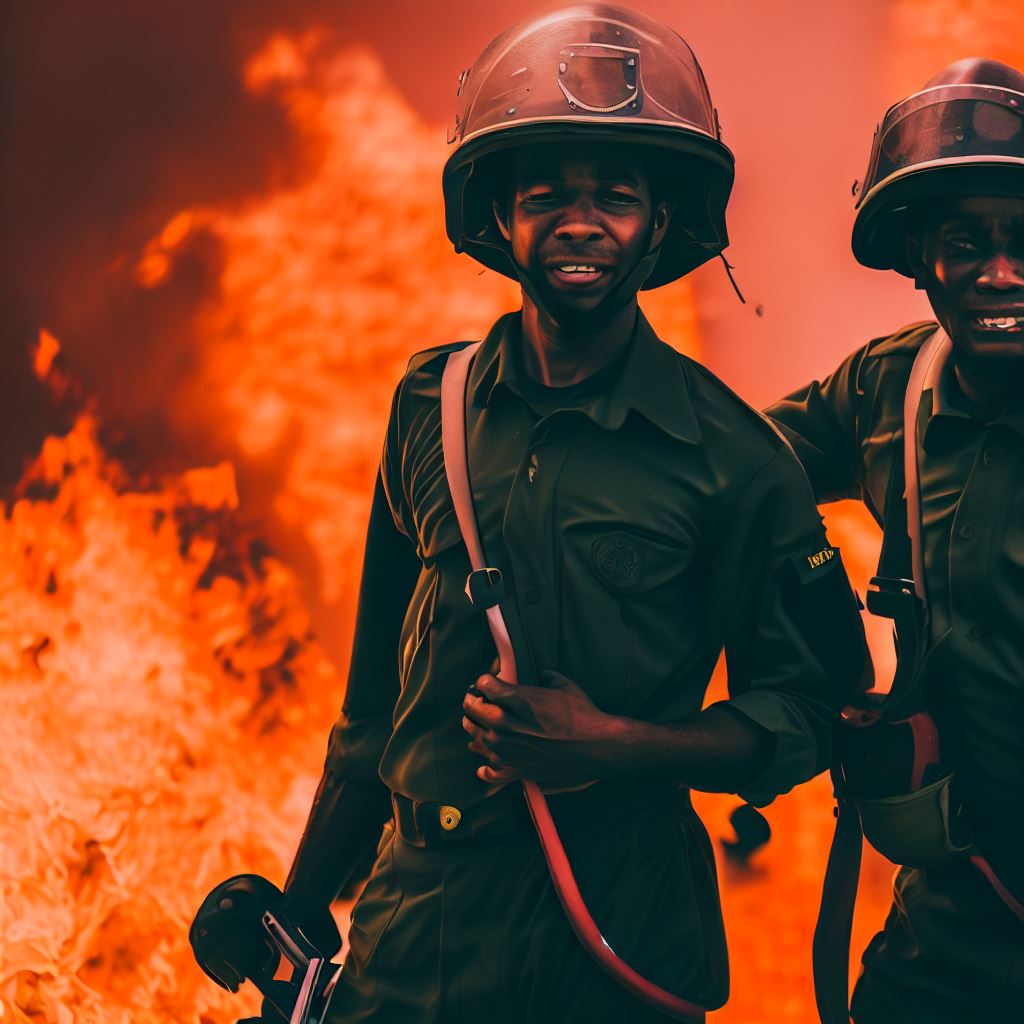Introduction
Fire Fighting Challenges and Triumphs in Nigeria; Firefighting in Nigeria presents a compelling narrative of resilience and resourcefulness.
Amidst formidable challenges, these brave firefighters have continued to rise to the occasion.
In Nigeria, firefighting has long grappled with inadequate funding, a scarcity of modern equipment, and limited training opportunities.
These challenges have tested the mettle of the firefighting community. Yet, their unwavering dedication and ingenuity have shone through.
With limited resources, Nigerian firefighters have forged innovative strategies to combat blazes.
They have maximized the utility of available equipment and tapped into their extensive experience to safeguard lives and property.
While the challenges persist, there is a glimmer of hope on the horizon.
The commitment and adaptability of Nigerian firefighters stand as a testament to their indomitable spirit.
As they continue to tackle the flames, their triumphs serve as an inspiration for us all.
Read: Hiring Now: Top Companies for Coating Technicians in Nigeria
Challenges in Fire Fighting in Nigeria
Lack of adequate infrastructure and resources
- Insufficient fire stations and equipment
- Limited access to water supply
Poor training and lack of specialized knowledge
- Inadequate training programs for firefighters
- Limited availability of specialized training for handling different types of fires
Corruption and mismanagement
- Allocation of funds and resources
- Lack of accountability and transparency
Firefighting in Nigeria has long been an uphill battle, riddled with obstacles that hinder effective response to fire incidents.
Chief among these hurdles is the glaring lack of infrastructure and resources. Inadequate fire stations and outdated equipment have left our firefighters ill-equipped to tackle emergencies swiftly.
However, amidst these challenges, there’s a glimmer of hope. Nigeria is now embarking on a path of transformation in its firefighting sector.
Investments are pouring in to establish more fire stations nationwide, coupled with modern firefighting equipment.
Comprehensive training programs are being developed to empower our firefighters with the skills and knowledge to handle diverse fire incidents.
Moreover, transparency and accountability measures are taking root, ensuring that resources allocated for firefighting are efficiently utilized.
In the face of adversity, Nigeria is rising to the occasion, inching closer to triumph in its fight against fires.
Read: Tech Innovations in Coating: Nigeria’s Growing Landscape
Triumphs in Fire Fighting in Nigeria
Improvement in infrastructure and resources
- Government initiatives to increase the number of fire stations.
- Acquisition of modern firefighting equipment.
The fire fighting sector in Nigeria has witnessed significant triumphs in recent years, particularly in terms of infrastructure and resources.
The government has taken various initiatives to enhance fire safety measures across the country.
One of the key triumphs has been the increase in the number of fire stations.
The government has recognized the need for more stations to effectively combat fire incidents.
As a result, new fire stations have been established in strategic locations throughout Nigeria.
Furthermore, the acquisition of modern firefighting equipment has been a major milestone in enhancing the capabilities of Nigerian fire fighters.
The government has invested in state-of-the-art equipment, including fire engines, hydraulic platforms, and advanced firefighting gear, to ensure efficient and effective fire response.
Enhanced training programs and specialization
- Collaboration with international organizations for specialized training.
- Development of local training institutes.
In addition to infrastructure improvement, Nigeria has made significant strides in enhancing fire fighters’ skills through enhanced training programs and specialization.
Collaboration with international organizations has played a crucial role in this endeavor. Nigerian fire fighters have had the opportunity to receive specialized training from experts in firefighting from around the world.
These programs have focused on advanced firefighting techniques, hazardous material handling, and rescue operations.
Furthermore, the development of local training institutes has empowered Nigerian fire fighters by providing them with access to quality training.
These institutes offer comprehensive courses on fire safety, incident management, and leadership. This emphasis on continuous training has resulted in a highly skilled and competent firefighting force in Nigeria.
Effective community engagement and awareness campaigns
- Educating the public on fire prevention and safety measures.
- Encouraging community involvement in firefighting efforts.
Besides infrastructure and training, successful fire fighting in Nigeria has also been attributed to effective community engagement and awareness campaigns.
Educating the public on fire prevention and safety measures has been a key focus of these campaigns.
Through various mediums, such as workshops, seminars, and public service announcements, the Nigerian government has raised awareness about fire hazards and educated citizens on precautionary measures to prevent fires.
This awareness has led to a significant reduction in fire incidents over time.
In addition, community involvement has been encouraged to ensure effective firefighting efforts.
Nigerian communities have been empowered to establish local fire volunteer groups, who play a crucial role in initial fire response before professional fire fighters arrive.
This community-led approach has significantly reduced response time and minimized potential damages caused by fires.
In fact, Nigeria has made significant triumphs in the field of fire fighting.
These triumphs include improvements in infrastructure and resources, enhanced training programs, and effective community engagement.
The government’s initiatives, coupled with collaboration with international organizations, have transformed the fire fighting sector in Nigeria, making it more efficient and capable of dealing with fire incidents effectively.
Read: Government Support: Policies for Coating Techs in Nigeria
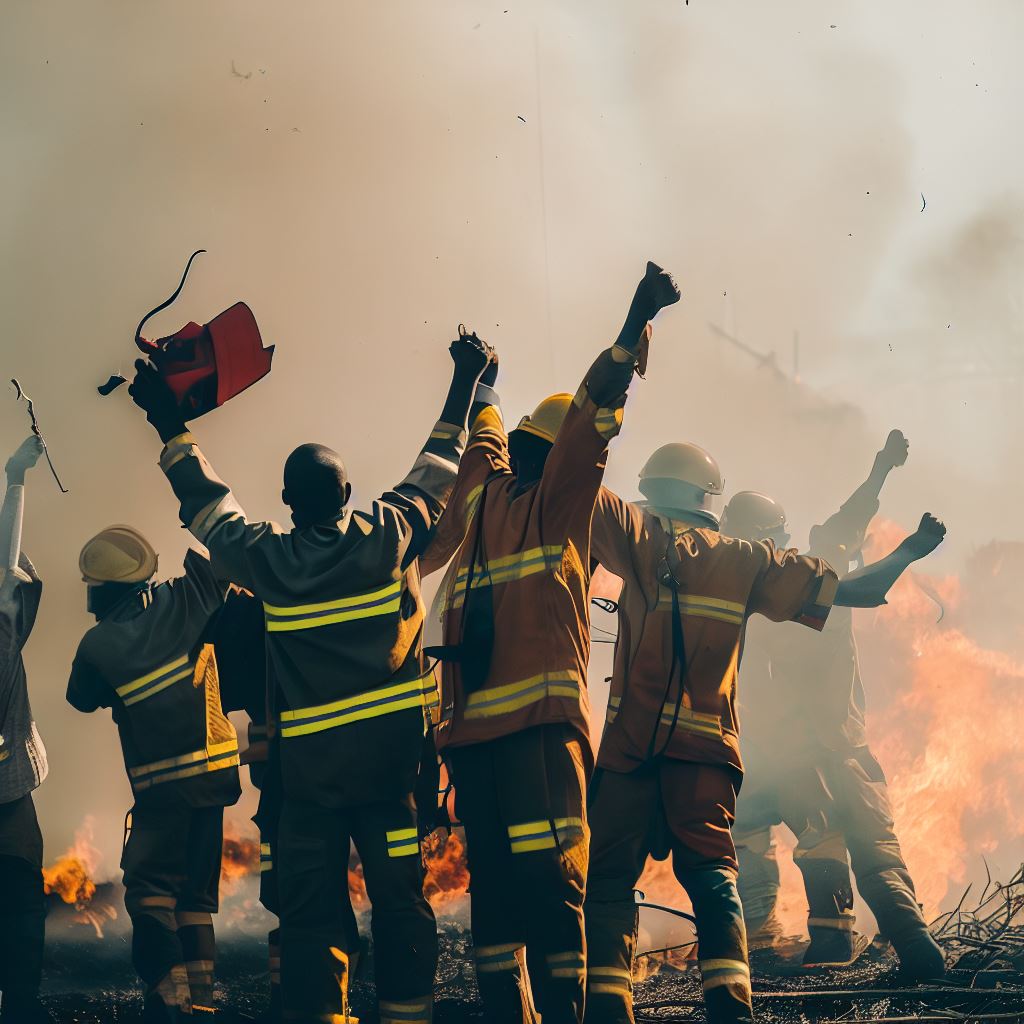
Case Studies: Successful Firefighting Operations in Nigeria
Specific instances where Nigerian firefighters successfully tackled major fires
1. Lagos Market Fire
- In 2019, Nigerian firefighters effectively controlled a massive fire at Balogun market in Lagos.
- The fire, which lasted for several hours, was brought under control without any casualties.
- Firefighters swiftly deployed multiple units, utilizing specialized equipment to combat the blaze.
- Their prompt response and efficient coordination prevented the fire from spreading to neighboring structures.
2. Oil Tanker Fire in Port Harcourt
- Nigerian firefighters demonstrated exceptional courage and skill during a challenging oil tanker fire.
- The fire broke out near a densely populated area, posing a high risk of casualties and property damage.
- Firefighters employed foam suppression techniques to quickly douse the flames and minimize the environmental impact.
- Their rapid intervention and adherence to safety protocols prevented a potential disaster.
Strategies and tactics employed in those operations
1. Effective Incident Command System
- Nigerian firefighters utilized a well-defined incident command system to streamline operations and ensure efficient decision-making.
- The incident commander coordinated the efforts of multiple units, facilitating effective resource allocation and communication.
2. Specialized Equipment and Training
- Firefighters were equipped with modern firefighting tools, including advanced fire trucks, aerial ladders, and specialized foam generators.
- They underwent rigorous training to enhance their firefighting skills and familiarize themselves with the latest techniques.
3. Collaborative Approach
- Firefighters actively collaborated with other emergency response agencies like the police, paramedics, and civil defense personnel.
- Close coordination ensured a swift and coordinated response, maximizing the effectiveness of firefighting operations.
Importance of interagency cooperation and coordination
1. Enhanced Response Capability
- Interagency cooperation enables fire services to pool resources and expertise, enhancing their overall response capability.
- Collaboration with other agencies ensures the availability of additional manpower, specialized equipment, and essential support services.
2. Improved Incident Management
- Coordination between different agencies helps establish a unified incident command system, improving overall incident management.
- Each agency can focus on their specific responsibilities while working together towards a common goal.
3. Increased Public Safety
- Effective coordination minimizes response time, allowing firefighters to reach the incident scene promptly.
- Collaborative efforts ensure a comprehensive approach, ensuring public safety by addressing all aspects of firefighting operations.
In short, Nigerian firefighters have demonstrated their competence and bravery in successfully tackling major fires.
Through effective strategies and tactics, such as utilizing specialized equipment, efficient incident command systems, and interagency cooperation, they have been able to protect lives and property.
These case studies highlight the importance of continuous training, modern equipment, and collaborative efforts in ensuring successful firefighting operations in Nigeria.
Read: Freelancing as a Coating Technician: Opportunities in Nigeria
Conclusion
Despite these challenges, there have been significant progress and triumphs in fire fighting efforts.
The establishment of new fire stations, acquisition of modern equipment, and improved training have resulted in better response times and more successful fire extinguishments.
Nevertheless, continuous improvement is still necessary in the sector.
There needs to be increased government investment in fire fighting infrastructure, as well as ongoing training and capacity building for firefighters.
Collaboration with international organizations and adoption of best practices can also contribute to further triumphs in fire fighting in Nigeria.

